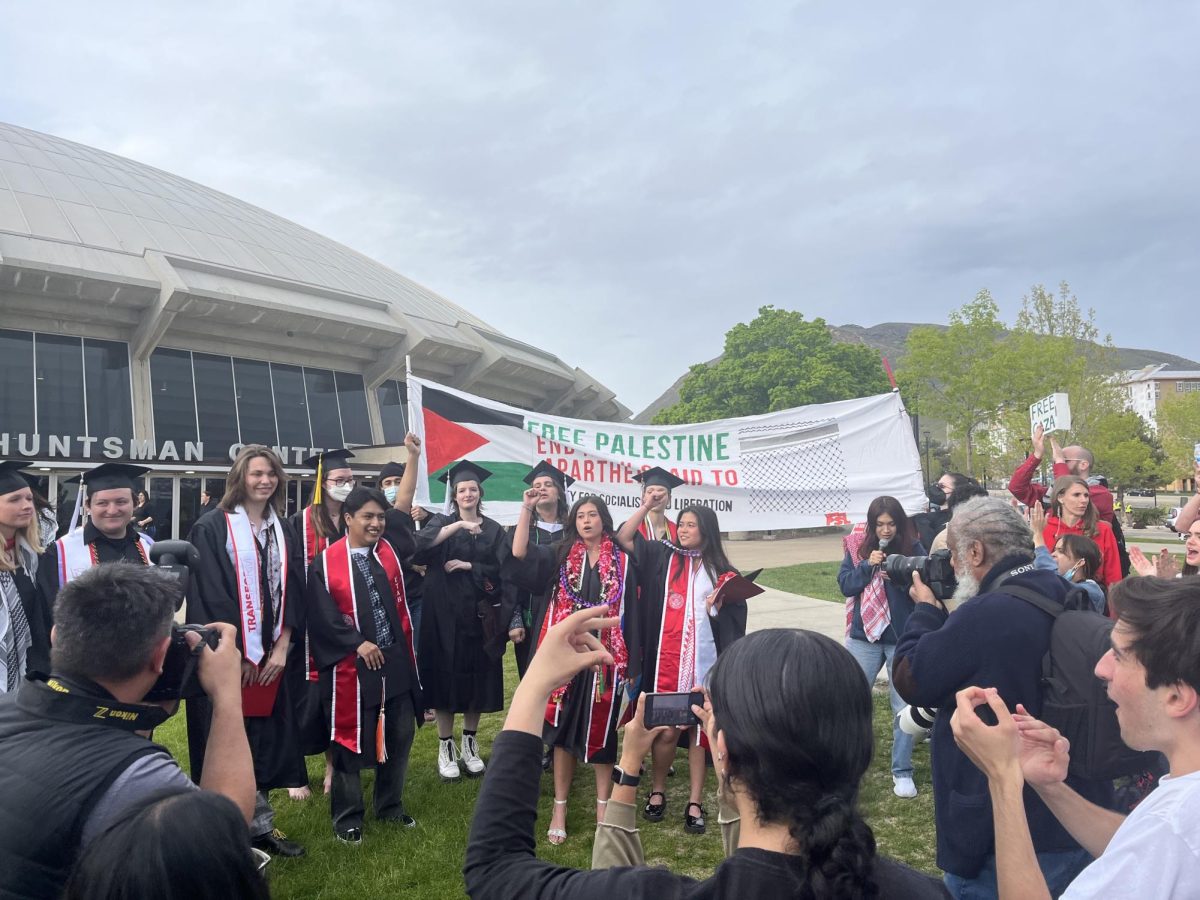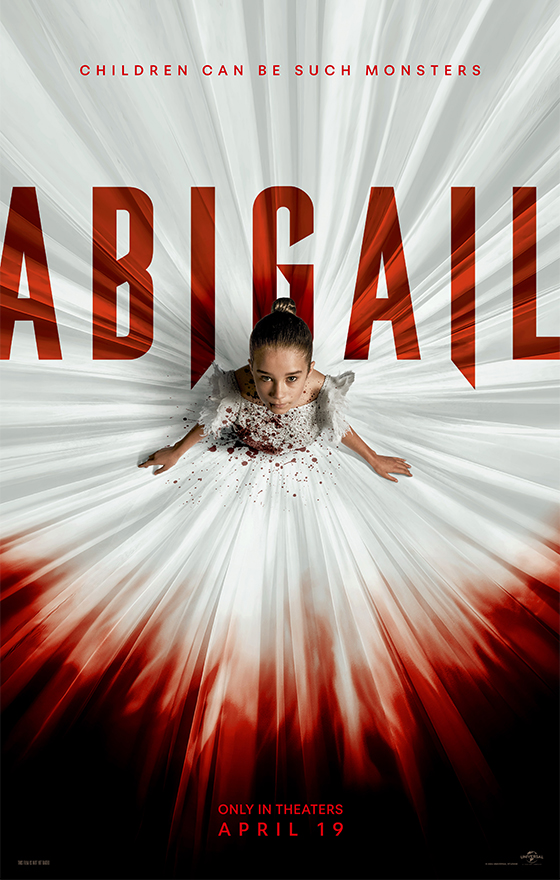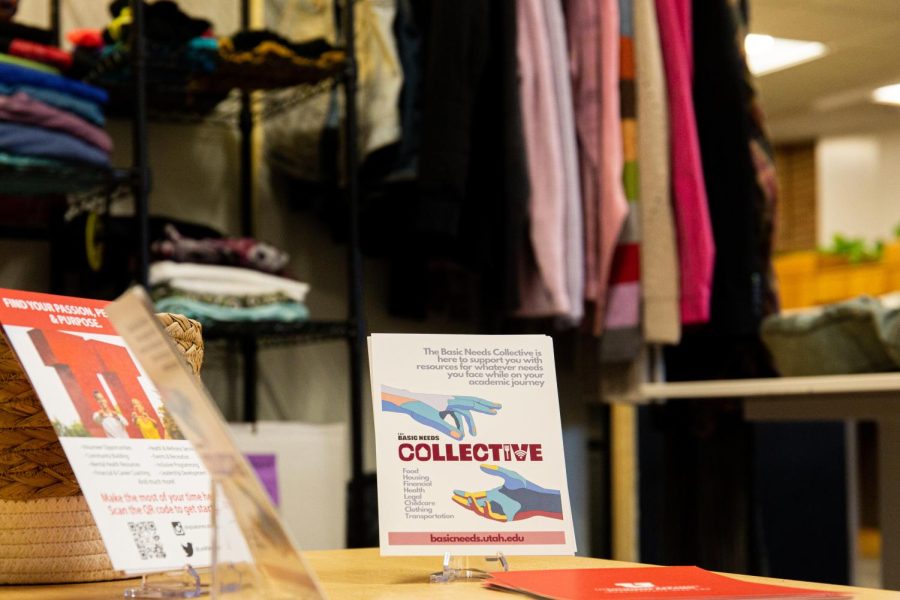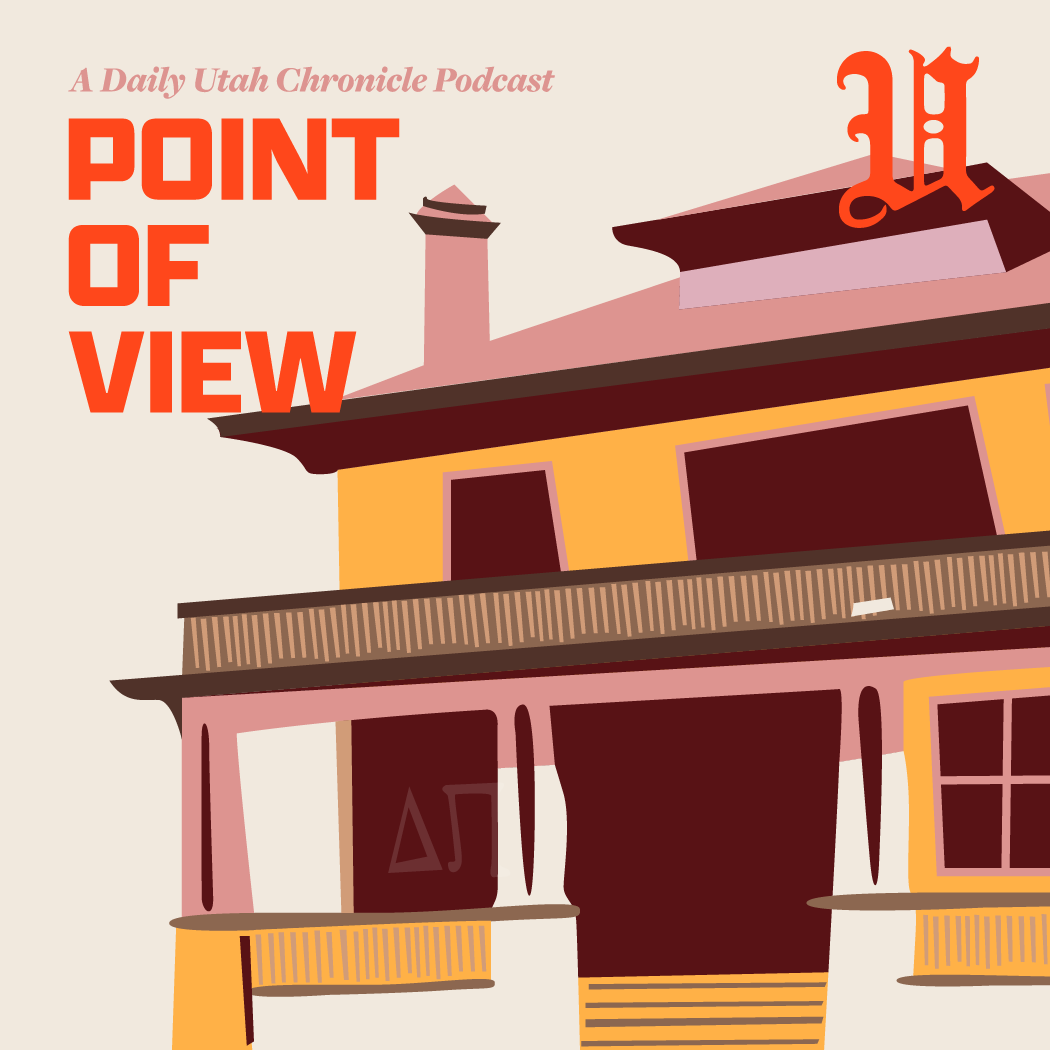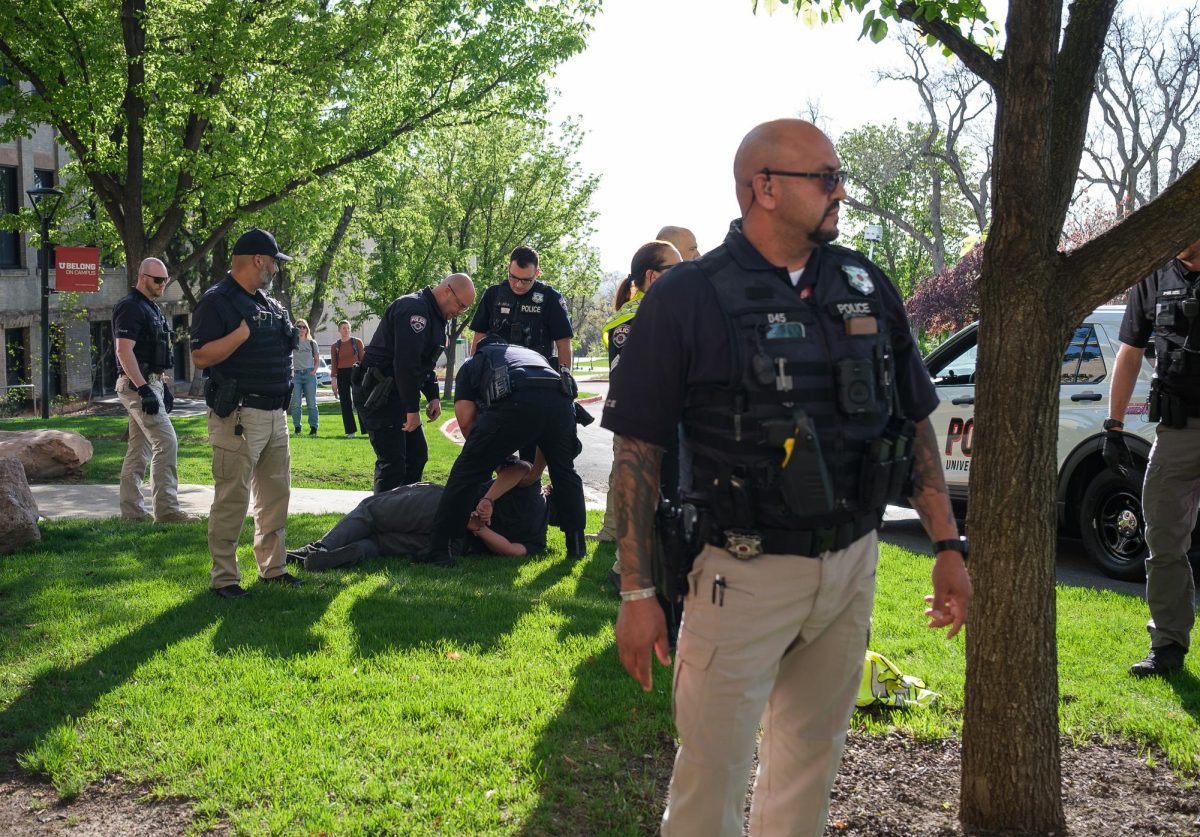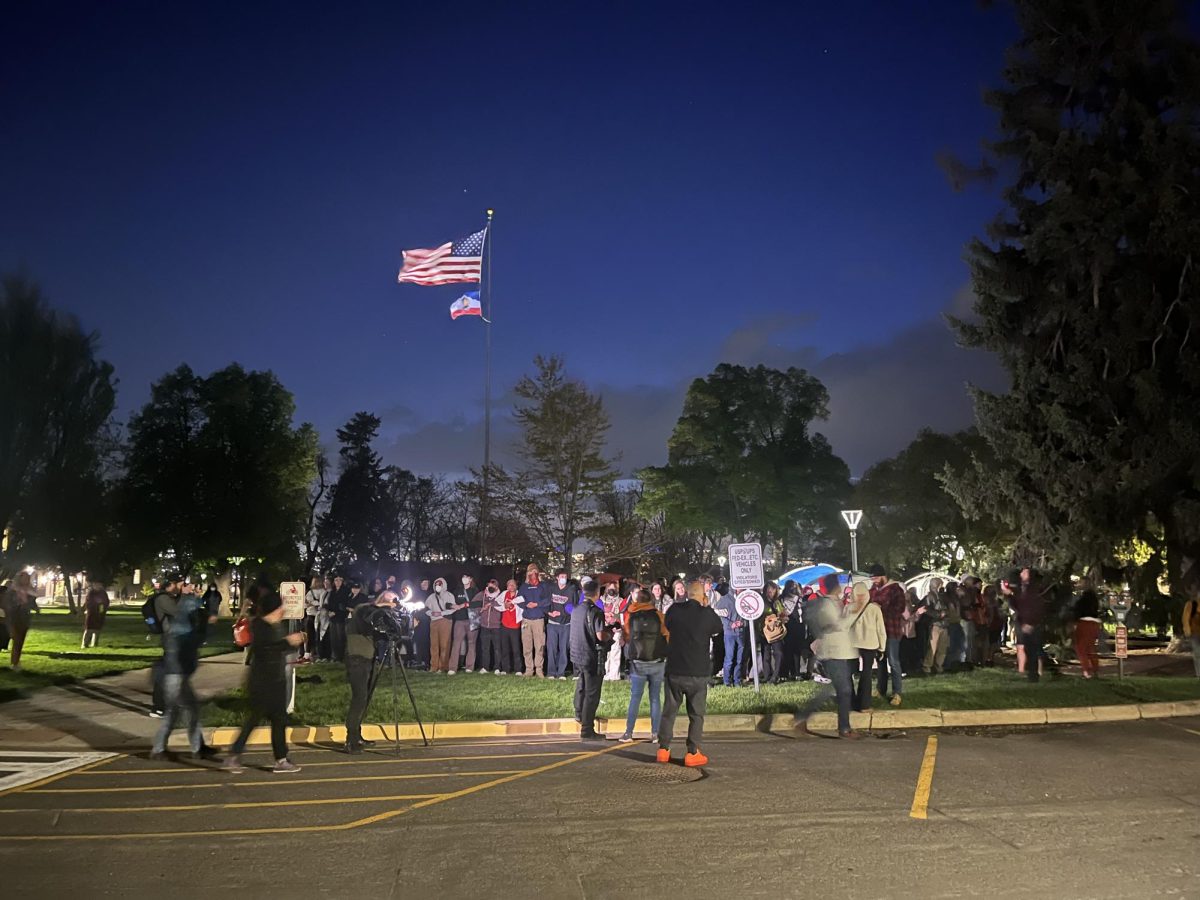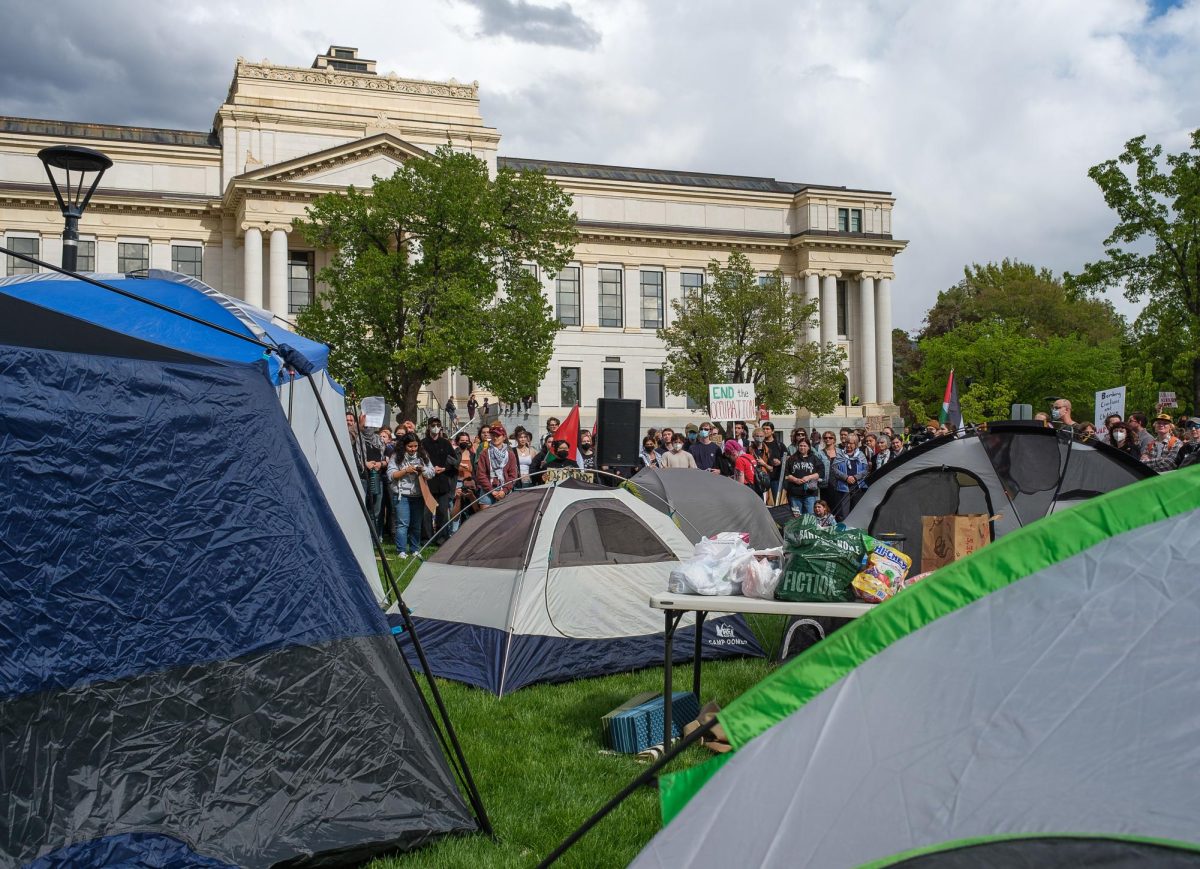Evolutionary theory can give researchers a better understanding of human aggression and violence, says David Carrier, a U biology professor.
Carrier, alongside other biology, psychology and anthropology professors, will meet at the U to discuss how evolution can illuminate the understanding of human aggression and violence in a forum from Feb. 25 to Feb. 27. The forum, “Evolution of Human Aggression: Lessons for Today’s Conflicts” is hosted by the Barbara L. and Norman C. Tanner Center for Nonviolent Human Rights Advocacy.
“Evolutionary history is not the whole story, but it’s an important part of it that we usually overlook,” Carrier said. “Humans are a particular type of animal and there are situations that make us more apt to employ aggressive behavior. To the extent that the evolutionary view can help us understand these situations, the better prepared we’ll be to prevent violence in the future. That’s the main goal.”
Elizabeth Cashdan, another conference organizer and chairwoman of the anthropology department at the U, said by focusing on evolution, the center hopes to give participants a fresh look at global conflict as well as personal aggression.
Cashdan said there are competing hypotheses using evolutionary theory that will allow the conference to explore several different approaches to human aggression.
“The conference will take evolution as a given because there is a general consensus in the scientific community that it has shaped human behaviors as well as bodies,” Cashdan said. “Our working assumption is that evolution has shaped humans in a way that makes us neither naturally violent or naturally peaceful.”
From that standpoint, presenters will explore what circumstances are most likely to promote peaceful outcomes.
“And if we can understand what conditions shape violent outcomes, we will know how to intervene,” Cashdan said.
Presentations will include subjects such as conflict resolution among great apes, coalitional human warfare, economics, hormones and domestic violence. By including diverse approaches, Cashdan believes participants will better understand evolution as well as human aggression.
Cashdan said that when she and others organized the forum, they were concerned it would send the message that natural selection is a ruthless battle. “Really, it’s more nuanced than that; evolutionary theorists also view human cooperation and altruism as evolved aspects of human nature,” she said.
Cashdan said conference organizers hope the presentations will provide information for those who have experienced domestic violence and other forms of aggression. The final conference session will include a panel discussion with people in the community who work with victims of domestic violence. They plan to ask the panel if evolutionary approaches make sense in terms of things seen day to day.
Deb Sawyer, a member of the Tanner Council advisory board, said she is thrilled with this year’s scheduled presenters.
“I’ve read books by the presenters and have heard their views in the academic community, so it is extremely exciting to be bringing them here,” Sawyer said. “I hope the university students who attend and the larger community here recognize what a treat it is to have these researchers come to our campus.”
To contact Cashdan for more information about the conference, e-mail her at [email protected].



